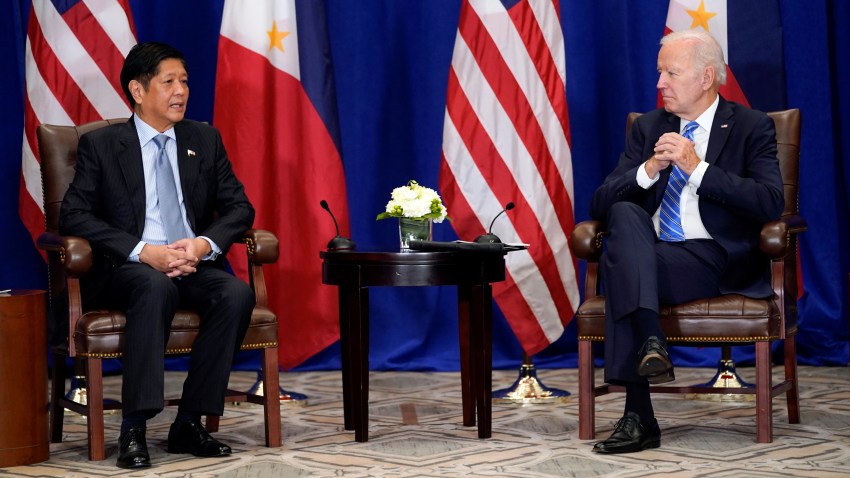Nearly nine months since he took office, Philippine President Ferdinand Marcos Jr. made his most consequential foreign-policy decision yet earlier this month, one that could go on to hold major implications for security in the broader Indo-Pacific region. Marcos caught allies as well as critics off guard on Feb. 1, when he announced his decision to “fully implement” the Enhanced Defense Cooperation Agreement, or EDCA, signed with the United States in 2014, but stymied by Marcos’ predecessor, former President Rodrigo Duterte. In addition, Manila will also grant U.S. forces access to additional military bases in the country’s northern provinces.
Marcos announced the decision on the eve of a visit by U.S. Secretary of Defense Lloyd Austin to Manila, the third such high-level visit by a senior U.S. official since he took office in June 2022. The defense pact, which was sealed amid rising tensions in the South China Sea, allows U.S. forces to pre-position weapons systems and establish critical infrastructure in strategically located military bases across the Philippines, including ones located close to Taiwan’s southern shores.
Marcos followed up that announcement by revealing during a working visit to Tokyo last week that discussions over a tripartite security agreement between the Philippines, Japan and the U.S. that would enhance military interoperability between the three countries were also taking place.

